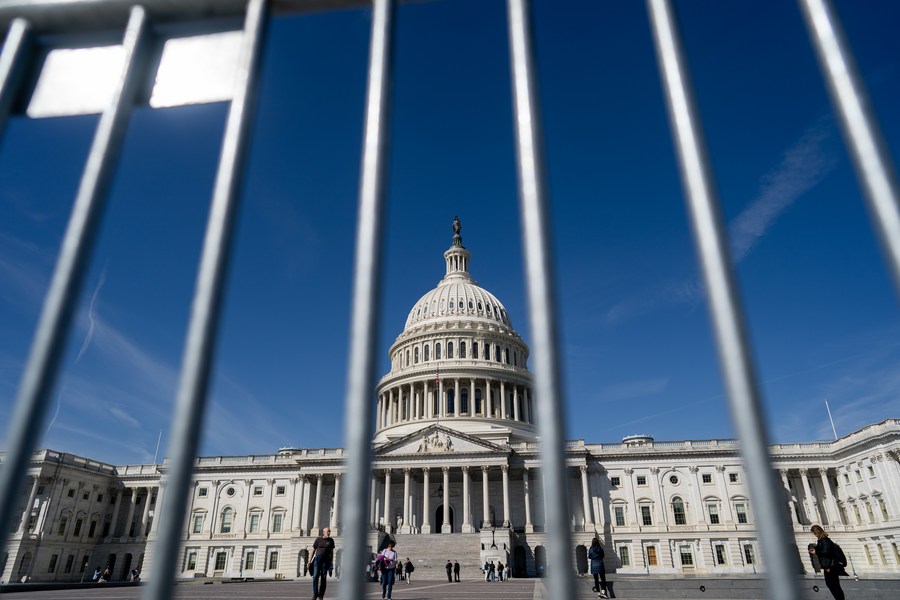US blamed for crises in Gaza and Lebanon
Washington criticized for backing Israel as Arab countries call for reform of UN


The hegemony of the United States and its allies has been criticized for undermining the UN system, which has failed to hold Israel accountable for the humanitarian crises in Gaza and, most recently, Lebanon.
Meanwhile, analysts emphasized Arab countries' call for reform of the world body during this week's high-level General Assembly meeting in New York.
Sheikh Tamim bin Hamad Al Thani, the emir of Qatar whose country is a mediator in the Gaza cease-fire negotiations, condemned the "blatant aggression" against Palestinians in Gaza, labeling it the "most barbaric, heinous and extensive" breach of human values and international norms.
"With all that has taken place and continues to take place, it is no longer tenable to speak of Israel's right to defend itself in this context without being complicit in justifying the crime," Al Thani said.
The Health Ministry in Hamas-run Gaza said on Wednesday that at least 41,495 people have been killed in the Israel-Palestine conflict, now in its 12th month.
The toll includes 28 deaths in the previous 24 hours, according to the ministry.
Lebanon's Hezbollah said in a statement it had fired a missile on Wednesday morning targeting the Mossad spy agency in Tel Aviv, Israel's financial hub, "in support of our steadfast Palestinian people in the Gaza Strip ... and in defense of Lebanon and its people".
Warning sirens sounded in Tel Aviv and elsewhere in central Israel but there were no reports of damage or casualties.
The Israeli military has mounted its heaviest airstrikes in a year of conflict this week, targeting Hezbollah leaders and hitting hundreds of sites deep inside Lebanon while Hezbollah has fired barrages of rockets into Israel.
There was no letup on Wednesday. Israel said its warplanes were carrying out extensive strikes in southern Lebanon and the Bekaa Valley, a Hezbollah stronghold.
Meeting challenges
Addressing the UN ahead of the 79th General Assembly on Monday, Algeria's Foreign Minister Ahmed Attaf said the UN must reform to meet the challenges facing the world, Arab News reported.
The current "imbalance "between member states is a source of "very serious tension, upheaval, all of which are thwarting international relations", he said.
"We believe that the organization requires reform, reform that would ensure continuity but also that the organization adapts to rise to the challenges and requirements of this era," he said. "Such reform would restore the organization to its vital role as the beating heart of international diplomacy and multilateral action."
Dina Yulianti Sulaeman, director of the Indonesia Center for Middle East Studies, told China Daily that the "increasingly open statements" of several Arab leaders condemning Israeli violence in Palestine show that they feel they can no longer remain silent "as they have been".
The US has always sided with Israel and thwarted many international efforts to stop the violence, she said. This US attitude "is the biggest obstacle to creating peace in the Middle East", she added.
Umer Karim, an associate fellow at the King Faisal Center for Research and Islamic Studies in Riyadh, Saudi Arabia, said the deadlock at the Security Council is probably the reason why Arab countries are pushing for the reforms and, in particular, the support provided by the US to Israel that has allowed the latter to continue its military operations in Gaza and Lebanon.
Speaking at the UN General Assembly on Tuesday, Turkiye's President Recep Tayyip Erdogan slammed Israeli Prime Minister Benjamin Netanyahu for dragging the Middle East region deeper into war, Al Jazeera reported. He appealed to the international community to stop Netanyahu "and his murder network".
'No effective pressure'
George Gerapetritis, foreign minister of Greece, told Reuters that it seemed there was no effective pressure upon Israel.
"We have not prevented the spillover, and the more dispersed the war becomes, the more the situation becomes more complicated to be solved," he said, adding that Lebanon "could easily be a zone of tremendous hostility, and this is something that we cannot deal with".
Greece, which was elected as a member of the Security Council from 2025 to 2026 earlier this year, believes its historical ties with the Arabs and Israel make it credible to act as a peace broker.
On Tuesday, UN Secretary-General Antonio Guterres wrote on X, "The situation in Gaza is a nonstop nightmare that threatens to take the entire region with it."
Lebanon is "at the brink", he added, and the world "cannot afford Lebanon to become another Gaza".
"The international community must mobilize an immediate ceasefire, the immediate and unconditional release of all hostages, and the beginning of an irreversible process toward a two-State solution," he said.
Agencies contributed to this story.

































